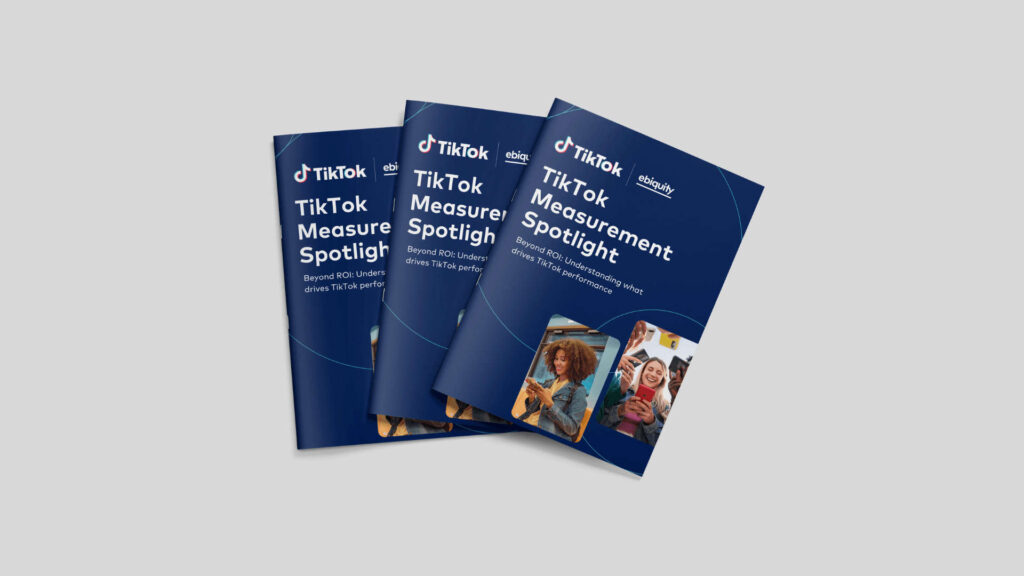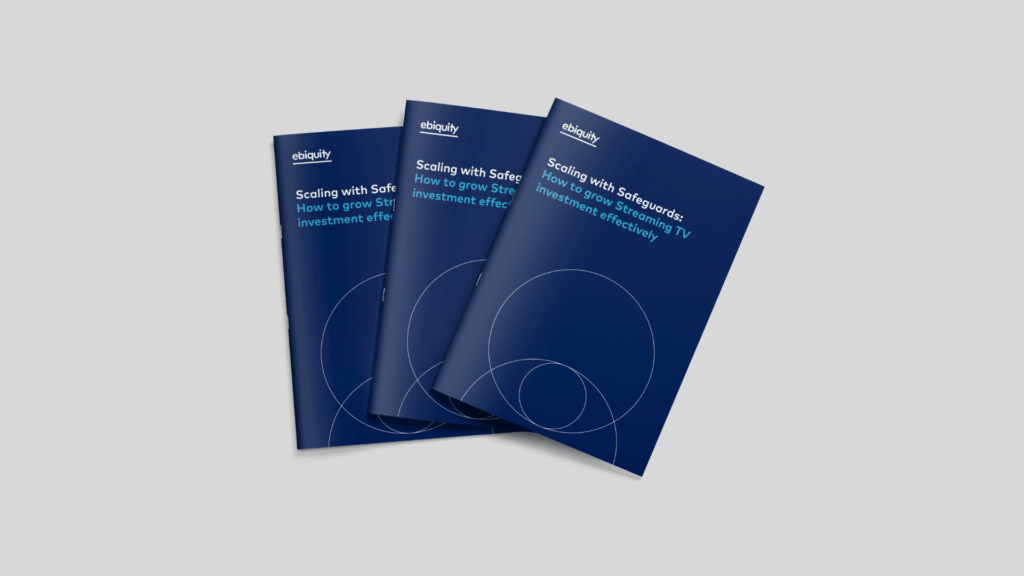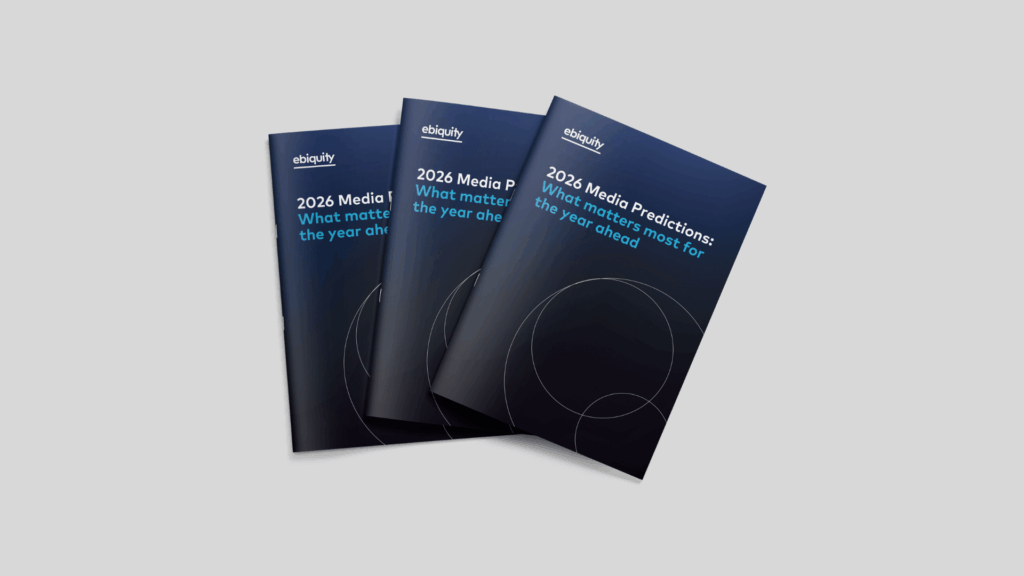The use of artificial intelligence and machine learning in advertising is a hot topic right now and it was the focus of Ebiquity’s most recent Procurement Forum. Harvey Sarjant, our Director of Data & Tech, reports back on the event, billed as ‘Demystifying AI in media planning and buying’
“We are already working very closely with our agency partners to make sure that we are extracting maximum value from the available automation solutions, and a lot of them are – increasingly – AI-driven. When it comes to planning, we’ve been using AI for scenario and zero-based budget planning at scale across our portfolio, which is crucial for maximising ROI.”
Olya Dyachuk, Global Media & Data Director
Julian Grainger, AI, Data & Tech Specialist at Ebiquity also spoke at the Forum. He added:
The use of artificial intelligence and machine learning in advertising is a hot topic right now and it was the focus of Ebiquity’s most recent Procurement Forum. Harvey Sarjant, our Director of Data & Tech, reports back on the event, billed as ‘Demystifying AI in media planning and buying’.
Research from the World Federation of Advertisers (WFA) shows that 91% of brands say they are already using or plan to start using generative AI soon for their marketing. Yet the same study also revealed very real anxiety about the rush to AI, with 80% saying they have concerns about agencies using it on their behalf. Control, full transparency, and good governance practices are vital to ensure that AI is used ethically and in-line with brand values.
First Creative …
AI is already transforming how brands reach and get closer to target audiences, developing more engaging and personalised experiences. This happened first with the generation of creative assets at scale and at pace. Tailored visuals, videos, and written content can now be created at the speed demanded by today’s marketing ecosystem, while still maintaining quality and brand values.
… Now Media
Machine learning and natural language processing are also being used increasingly in media buying and planning to maximise ROI. Rapidly evolving algorithms are enabling brands to optimise campaigns and ad placement across platforms in real-time, delivering on the promise of dynamic pricing for campaign optimisation. What’s more, the increasing use of synthetic data allows brands to mimic real-world interactions with consumers, test campaigns, and personalise content without using real user data, thereby protecting privacy.
Improving the Craft of Media Planning
Before the application of AI to planning and buying, agency planners were struggling to keep up with the ever-expanding digital media landscape. Increasingly, advanced algorithms can collect and organise massive volumes of media data – reliably and without ever becoming exhausted as their human predecessors could – making campaigns orders of magnitude more efficient and media planning more responsive than ever.
An estimated 90% of previously manual tasks are now performed automatically. This includes value-based bidding in programmatic, leveraging personal and behavioural data along with media performance data to continuously optimise campaigns. This process of automation serves to enhance precision and efficiency in media operations, as well as removing subjectivity from the data and analytics side of planning. As a result, human planners are being freed up to do more of the work they’re being paid to do, thereby improving the craft of media planning.
The WFA reports that more than half of all brands (57%) trust AI to deliver in this domain, though handing these operations over to algorithms demands higher standards of oversight.
Good Governance
AI is clearly not a simple cure-all that can be turned on, ignored, and be left to get on with running media planning and buying. The EU AI Act – published in August 2024 and being phased in over the next two years – requires brands to put measures in place to respect and protect consumer privacy and human rights.
What’s more, there are already signs that some risk putting an over-reliance on automation. Of course, advanced algorithms can create efficiencies, but human oversight, AI monitoring, and good governance procedures – including having a “STOP!” button in place – are all essential. According to the WFA survey, almost two-thirds of brands have already adopted responsible AI principles. That said, just 35% have translated these into concrete behaviours. And since AI is not just a technological but also an organisational change, upskilling AI literacy should be top of all advertisers’ to-do lists.
There are encouraging signs that AI and machine learning are making media planning and buying much more streamlined and strategic while at the same time less labour-intensive. To make it truly deliver, brands need to adopt a hybrid artificial-human intelligence model.
Olya Dyachuk, Global Media & Data Director at Heineken joined us at the Procurement Forum. She said: :
“We are already working very closely with our agency partners to make sure that we are extracting maximum value from the available automation solutions, and a lot of them are – increasingly – AI-driven. When it comes to planning, we’ve been using AI for scenario and zero-based budget planning at scale across our portfolio, which is crucial for maximising ROI.”
Olya Dyachuk, Global Media & Data Director
Julian Grainger, AI, Data & Tech Specialist at Ebiquity also spoke at the Forum. He added:
“To make sure that brands get ready for the transition for AI in media planning and buying, they need to focus fundamentally on people, process, and technology in using AI. For tech, this means applying AI across data. Bring together all enterprise data into data clouds in one area. For process, it’s about governance and guardrails that go beyond security and privacy. And for people, it means spending at least the next couple of years getting staff and partners to basic literacy levels.”
Julian Grainger, AI, Data & Tech Specialist
Navigating the complexities of AI in media requires clarity, compliance, and collaboration. Ebiquity’s AI Catalogue is designed to close critical knowledge gaps, offering actionable insights into Adtech and Martech systems. It empowers brands to adopt AI responsibly in media planning and buying while addressing legal risks under the EU AI Act. By leveraging the AI Catalogue, brands can align with the Act’s requirements, identify and mitigate risks tied to prohibited AI practices, and ensure technical transparency for regulatory compliance. Equip your teams with the tools to foster ethical AI usage, streamline media operations, and strengthen collaboration with legal teams.









